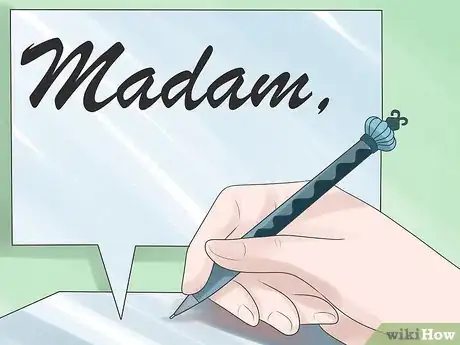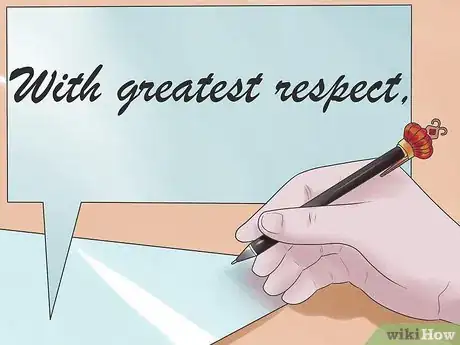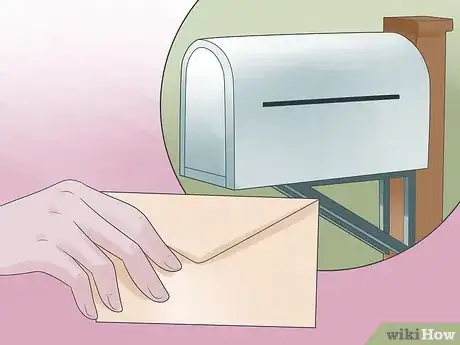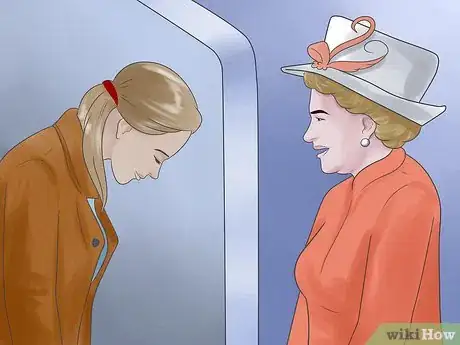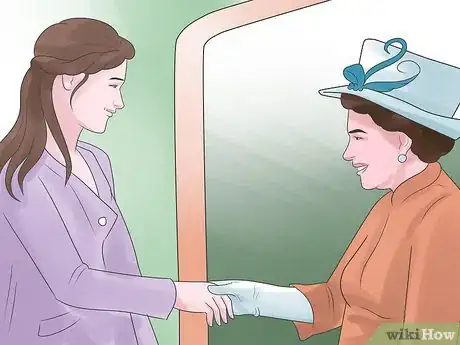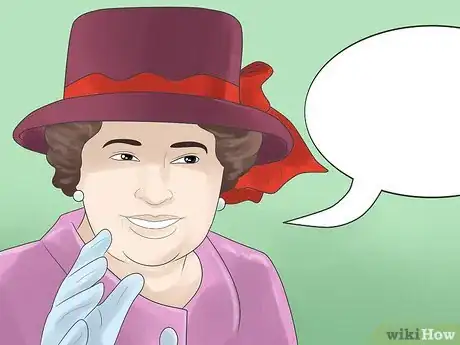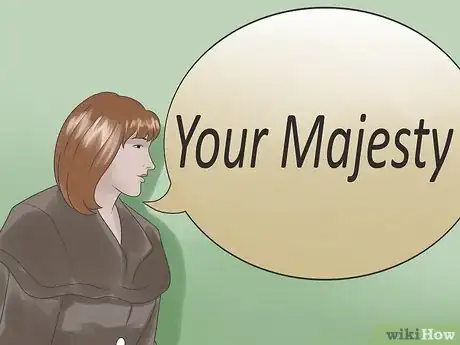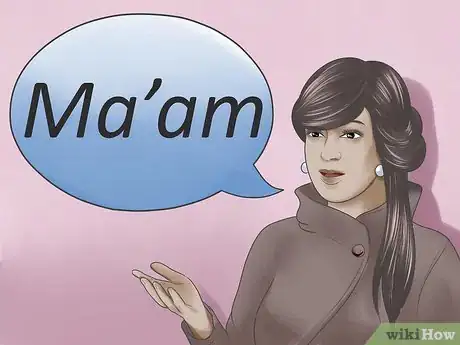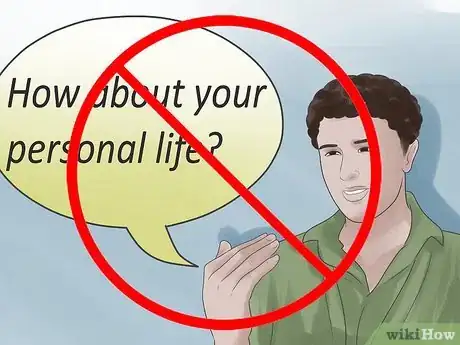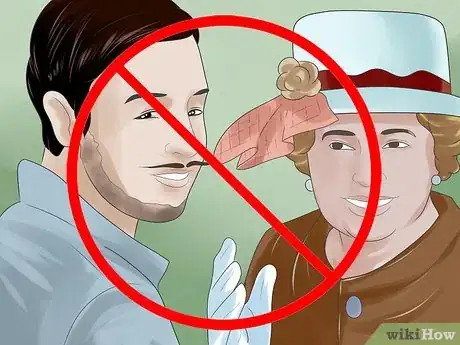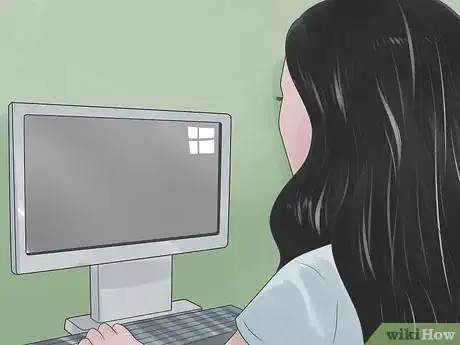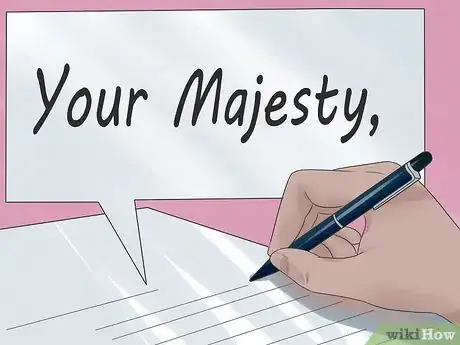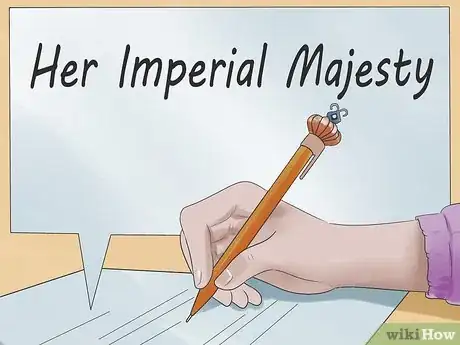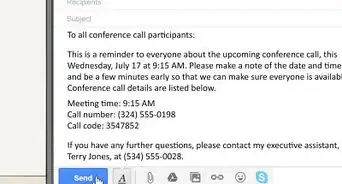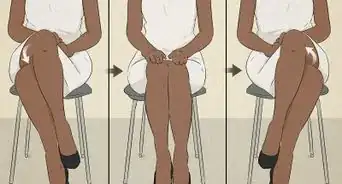This article was co-authored by Tami Claytor. Tami Claytor is an Etiquette Coach, Image Consultant, and the Owner of Always Appropriate Image and Etiquette Consulting in New York, New York. With over 20 years of experience, Tami specializes in teaching etiquette classes to individuals, students, companies, and community organizations. Tami has spent decades studying cultures through her extensive travels across five continents and has created cultural diversity workshops to promote social justice and cross-cultural awareness. She holds a BA in Economics with a concentration in International Relations from Clark University. Tami studied at the Ophelia DeVore School of Charm and the Fashion Institute of Technology, where she earned her Image Consultant Certification.
This article has been viewed 86,921 times.
It's a special privilege to get a chance to speak with a queen, so it's only natural that you'd want to get it right. We have all the etiquette tips you need for addressing a queen, whether you're talking to her in person or sending a letter.
Steps
Addressing a British Queen in a Letter
The UK doesn't currently have a Queen, but you may still want to know for if the UK does in the future.
-
1Decide whether to use traditional forms. According to the Royal Family's official policy, you should be free to write in whatever style you like.[1] Politeness and respect will make any letter more kindly received, but that does not necessarily equate to using formal terms. Stay sincere, and do not use the formal terms below if they make you uncomfortable.
-
2Begin the letter with "Madam." At the top of your letter, write "Madam," skip a line, and start writing your letter on the line below it. This is the formal and traditional term of address when writing a letter to the Queen of the United Kingdom.Advertisement
-
3Conclude the letter with a respectful term. The traditional written conclusion is I have the honour to be, Madam, Your Majesty's most humble and obedient servant, followed by your name.[2] If you find this conclusion distasteful due to the declaration of servitude, or the insertion of the letter u in honour, consider one of the following respectful conclusions instead:
- With greatest respect,
- Yours faithfully,
- Yours sincerely,
- If you make a request, end the letter with a thank you and write your name.[3]
-
4Mail the letter. On the envelope, write the following postal address, using the last line only if you are mailing the letter from outside the UK:
- The Queen
- Buckingham Palace
- London SW1A 1AA
- United Kingdom
Addressing a British Queen in Person
-
1Make a small curtsy, bow, or nod. Traditionally, women do a discreet curtsy and men bow from the neck when they meet the Queen of the United Kingdom.[4] This is no longer required, but citizens of the Commonwealth usually choose to use this greeting. People who are not subjects of the Queen often prefer to use a slight nod instead.[5]
- Do not bow from the waist.
-
2Politely shake the Queen's hand if offered. The Queen may or may not offer her hand, although there is no special significance to one decision or the other. If she does offer her hand, take it in a brief, gentle handshake.
- Do not offer your hand first.
-
3Wait for Her Majesty to address you. A good general rule, in fact, is not to initiate an action or conversation until the Queen has addressed you directly. Needless to say, wait until the Queen finishes speaking before you reply.
-
4Address her as "Your Majesty" the first time in the conversation. If you are stuck for words, say "Hello, Your Majesty. I am delighted to meet you." Any polite greeting is acceptable, however.[6]
-
5Address her as "Ma'am" for the rest of the conversation. For the rest of the conversation, say, "Ma'am," pronounced to rhyme with "jam." You may use the term "Your Majesty" again if you are asking her a question or introducing someone, but "Ma'am" will do most of the time.
-
6Don't ask personal questions. Most likely, the Queen will be guiding the conversation. But if you contribute your own small talk, avoid asking her about her family or personal life.[7]
-
7Don't turn your back on the Queen until the conversation is over. Remain facing her or standing to the side throughout the conversation. Turn away or leave only when the conversation is over.[8] And of course, don't forget to give her a proper good-bye and thank Her Majesty for the unexpected opportunity.
Addressing Queens of Other Nations
-
1Try to find the specific form of address. Monarchies often have specific terms of address borne of their countries' traditions. Search online or in etiquette books for the terms of address for the specific monarchy.
-
2When in doubt, use "Your Majesty." The term "Your Majesty" is common and unlikely to cause offense. This term is the proper way to address most queens, from Queen Pengiran Anak Saleha of Brunei, to Queen Mathilde of Belgium.
- Use "Her Majesty" instead of "her" when writing or speaking about these queens in the third person.
-
3Address Empresses as "Her Imperial Majesty." If a monarch's title includes "Empress," or if the nation she heads traditionally considers itself an empire, she should be addressed as "Her Imperial Majesty."
Community Q&A
-
QuestionIf the queen stretches out her hand, what do I do?
 Community AnswerTake her hand, and shake it.
Community AnswerTake her hand, and shake it. -
QuestionWhy is she called sovereign?
 Community AnswerSovereign means supreme ruler or monarch, which is the fitting description for a queen or king.
Community AnswerSovereign means supreme ruler or monarch, which is the fitting description for a queen or king. -
QuestionWhen meeting the queen, what should I do if I forget some of these?
 Community AnswerAs long as you behave as politely and respectfully as possible, you'll be fine. The queen knows that everybody makes mistakes, especially in a high-stress situation like this.
Community AnswerAs long as you behave as politely and respectfully as possible, you'll be fine. The queen knows that everybody makes mistakes, especially in a high-stress situation like this.
References
- ↑ http://www.royal.gov.uk/ThecurrentRoyalFamily/HowtocontactamemberofTheRoyalFamily/Overview.aspx
- ↑ http://www.royal.gov.uk/ThecurrentRoyalFamily/HowtocontactamemberofTheRoyalFamily/Overview.aspx
- ↑ https://www.indeed.com/career-advice/career-development/how-to-end-a-letter
- ↑ http://www.royal.gov.uk/ThecurrentRoyalFamily/GreetingamemberofTheRoyalFamily/Overview.aspx
- ↑ http://www.formsofaddress.info/King_Queen.html
- ↑ https://www.merriam-webster.com/words-at-play/a-field-guide-to-british-noble-titles-whats-a-duchess
- ↑ http://abcnews.go.com/Politics/International/story?id=7228105&page=2
- ↑ http://abcnews.go.com/Politics/International/story?id=7228105&page=2
- ↑ http://www.royal.gov.uk/ThecurrentRoyalFamily/GreetingamemberofTheRoyalFamily/Overview.aspx
About This Article
If you are addressing Queen Elizabeth II formally in writing, begin by writing “Madam” at the top, skip a line, then begin composing your letter on the line below. After finishing your letter, sign it with a respectful conclusion such as “With greatest respect” or “Yours faithfully.” If you are addressing Queen Elizabeth II in person, make a small curtsy, bow, or nod upon greeting her, and only shake her hand if it is offered to you. Address her as “Your Majesty” the first time in conversation and as “Ma’am” on subsequent references. Read more to find the Queen’s address for mailing letters and tips for addressing Queens of other nations.

